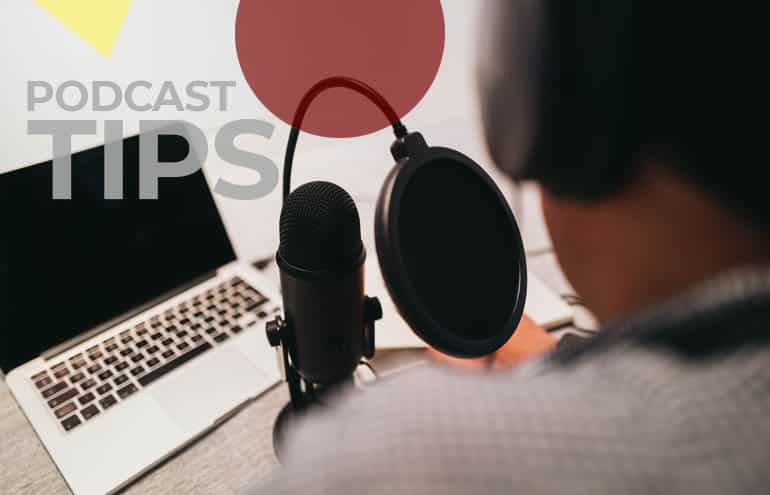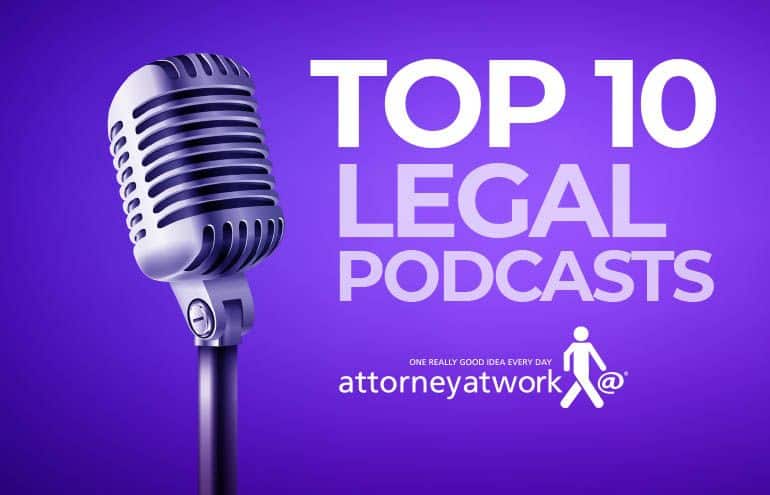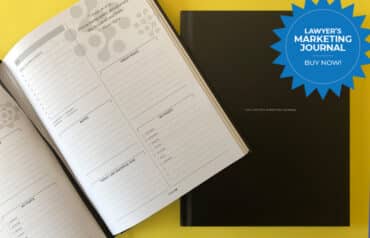Legal marketing consultants recommend regular podcasting to help build your practice. Yet, some podcasters misunderstand what draws listeners to legal podcasts (and what repels them).

Table of contents
A would-be listener chooses a podcast based on the description of the content. Yet, too many podcasts are just unlistenable.
I have two simple requirements to listen to any podcaster. Don’t be boring. Be articulate.
You Have to Be Interesting
The director of a CLE organization once told me that an audience will accept a boring in-person speaker if that audience really needs the information the speaker is there to deliver. Podcasts are different.
Pretty much by definition, most listeners are only using part of their brain to listen to a podcast. They are commuting, exercising, doing household chores or working on their hobbies. They want the additional input, but minds are likely to and often should wander.
I tried listening to the podcast of a self-styled “investigative comedian” I enjoyed on other platforms. The podcast was unbearable because two-thirds of the noises that came out of the guest’s mouth were “like,” “um,” “you know,” and other fillers. With 5 million other podcasts available, I never listened to this one again. I don’t have time for that, and I’m guessing neither do you or your potential listeners.
Do People Want to Listen to You?
I have a love-hate thing going on with Alex Lawson, one of the hosts of Law360’s Pro Say legal podcast. No, I’ve never met the man, but I do listen to the podcasts. Sometimes painfully.
In the 45 minutes of Episode 288, Lawson used “like” as a filler word 38 times, sometimes multiple times in the same sentence. This is in addition to using “like” to mean “such as” nine times. He used “you know” 23 times and “I mean” 16 times. It was only while undertaking this enumeration that I realized that there were also a lot of uses of “sort of,” which I did not count.
And don’t get me started on all the times he says “and I” when the sentence calls for the objective case “and me.”
I usually listen to Pro Say while alone in my car where I can yell at the speakers, “Stop doing that!” Like the audience described by the CLE director, I want Pro Say’s information. Thankfully, there are usually two other co-hosts as well as guests who are more prone to narrate their stories with actual words.
Be Honest With Yourself
Record a sample podcast segment where you explain something. Don’t read — work from notes if necessary. Ask someone to throw an unrehearsed question at you. How many times did you use filler words á la Alex Lawson?
Because you hear your own voice through the vibrations of your skull as well as through your ears, you do not hear your own voice as others do. Did you like what you heard in the recording? Will others want to tune in to hear this voice regularly?
And then there’s upspeak, also known as uptalk.
Many millennials and Gen Zers end every sentence and many clauses by raising their voice as if asking a question. This speech mannerism undercuts credibility because the sentence is no longer definitive. It’s also annoying.
Starting a podcast takes a lot of effort. You won’t be able to attract and hold on to listeners if your delivery undermines the value of your message.
Ask others at home and in your firm to be honest about whether they think your speech mannerisms are conducive to broadcast. A truthful response (if you can get one) can encourage or humble you.
You Probably Need Guests
It isn’t only your own ability to engage listeners that matters. Many podcasters feature a guest on each podcast, typically someone with special expertise in an aspect of the podcast topic. This keeps your podcasts varied and interesting.
Just as you must be appealing and articulate, discriminate in favor of guests you have heard elsewhere to confirm that they too can meet these criteria. No matter how well-spoken you are, as with the hapless comedian, a mumbling, meandering guest can cost you followers.
Don’t be timid about inviting high-profile guests.
The worst that can happen is that the person will say “no.” You may be surprised how many people will jump at the chance. As your podcast becomes more popular, people will beg to come on your show.
Even the most fascinating guest will come across poorly if you have not rehearsed together. Plan your questions and submit them to your guest in advance. Based on your prior knowledge of the guest’s work, you may have an outline in mind for the answers, too. The effort you put into the pre-interview forecasts the success of the ultimate show.
Up for the Challenge?
Does the idea of podcasting excite you? If you have the time and the skills to put together a continuing string of shows, this cost-effective marketing tool may be for you.
Listen to the Best: Attorney at Work’s Podcast Report
The results are in for Attorney at Work’s first podcast survey — including readers’ favorite legal podcasts, business podcasts, and ‘just for fun’ podcasts. Click over to www.attorneyatwork.com/attorney-at-work-podcast-survey-report.

When asked to list their favorite legal podcasts, these 10 shows were recommended most often by respondents. Click here for more details on the winning shows.
Illustration ©iStockPhoto.com
Subscribe to Attorney at Work
Get really good ideas every day for your law practice: Subscribe to the Daily Dispatch (it’s free).
A New Marketing Journal Designed for Lawyers
Every element of this beautiful guided journal has been designed to both motivate you and keep your marketing efforts on track. From Theda C. Snyder and Attorney at Work, the Lawyer’s Marketing Journal is the perfect place to capture all your great ideas, write down your daily tasks, notes and accomplishments — and monitor your progress. Take control of your marketing and order your journal today.

















